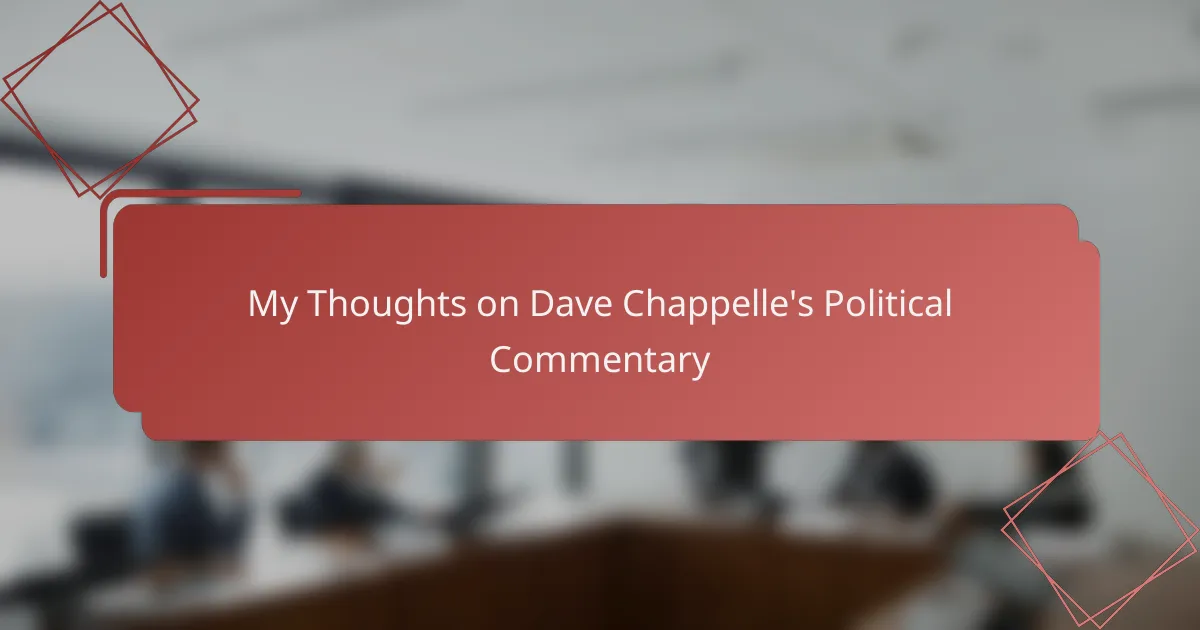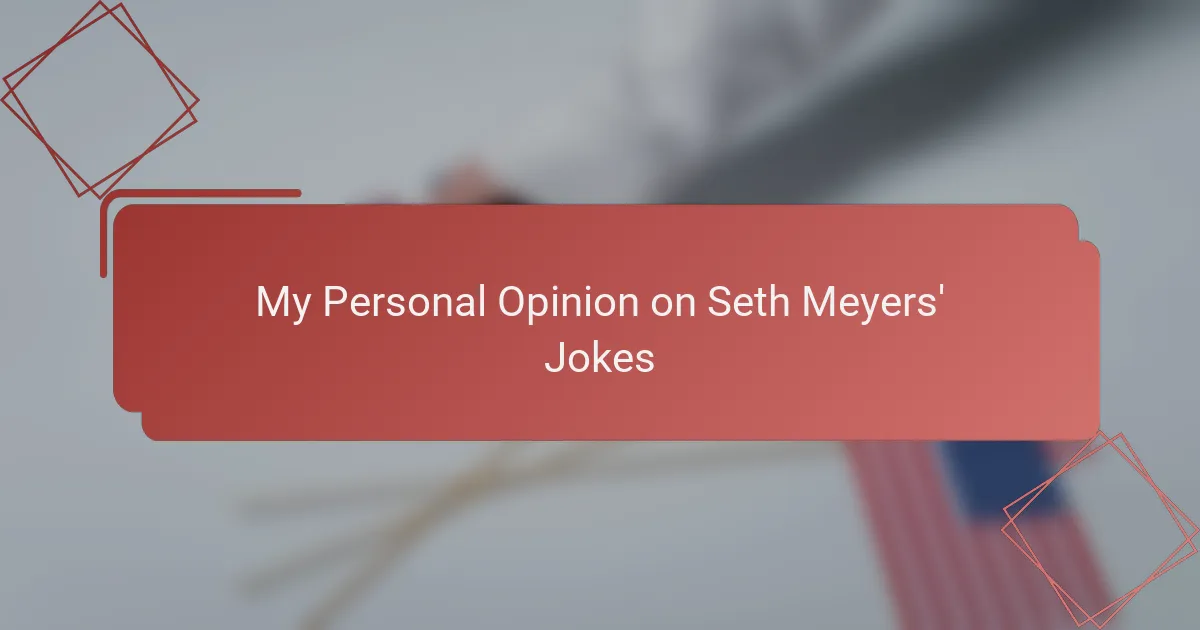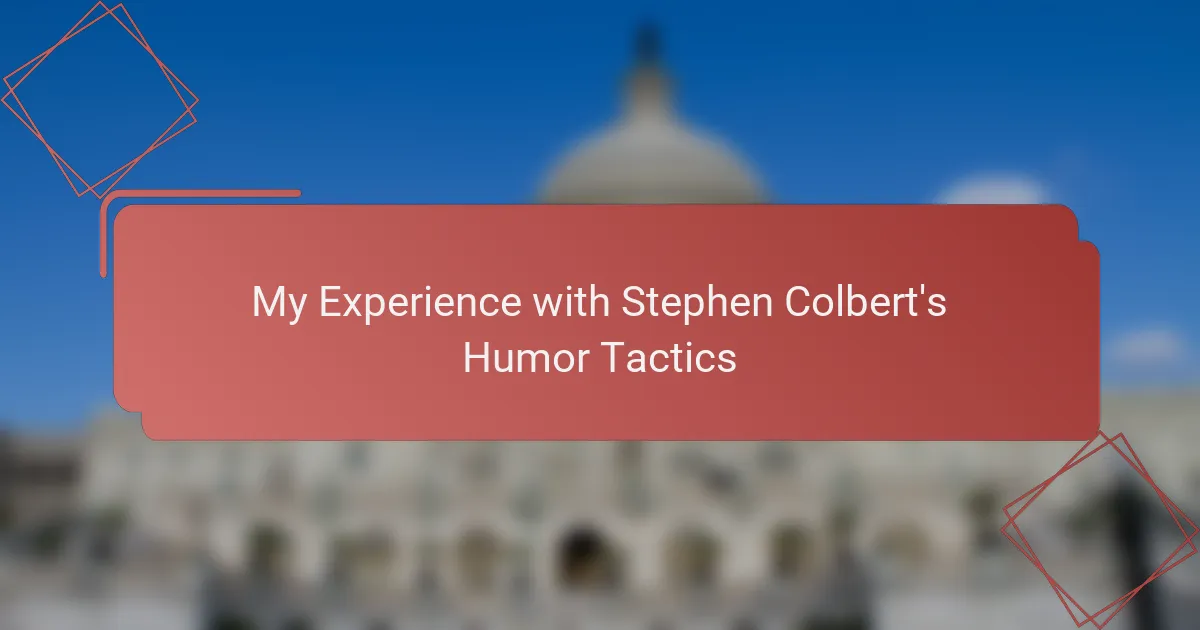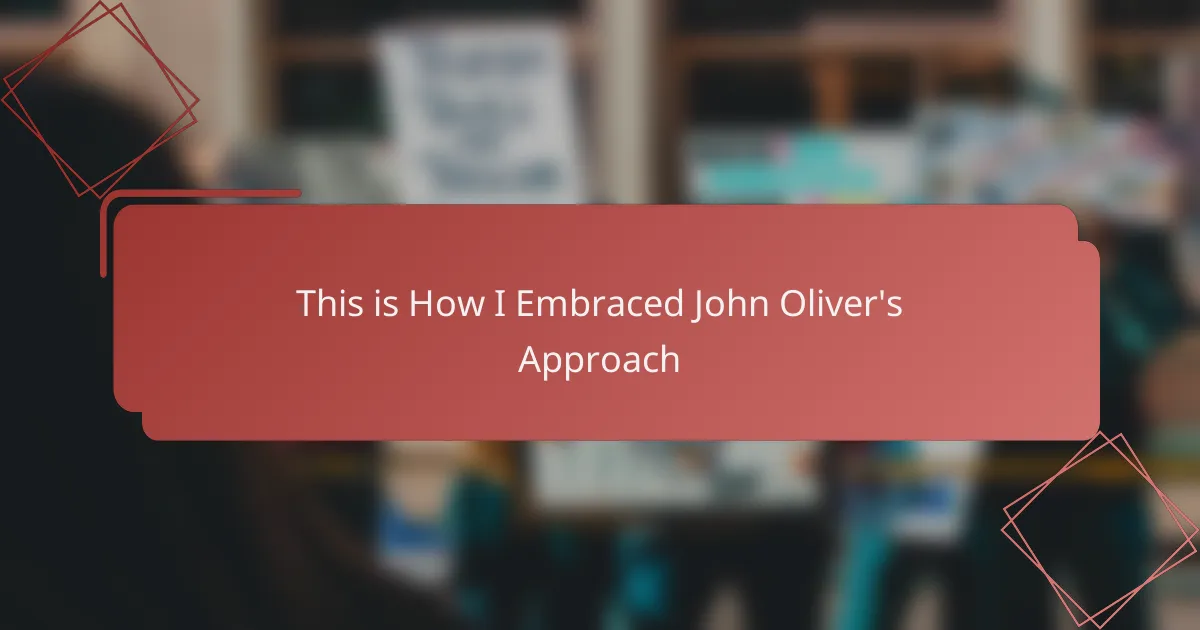Key takeaways
- Political satire effectively blends humor with critique, prompting deeper reflection on societal issues.
- Key elements of successful satire include clarity, timing, and empathy, enhancing relatability and impact.
- Dave Chappelle’s bold approach challenges audiences to confront uncomfortable truths while making complex issues accessible.
- Chappelle’s satire encourages critical thinking and dialogue about sensitive subjects, using humor to bridge divides.
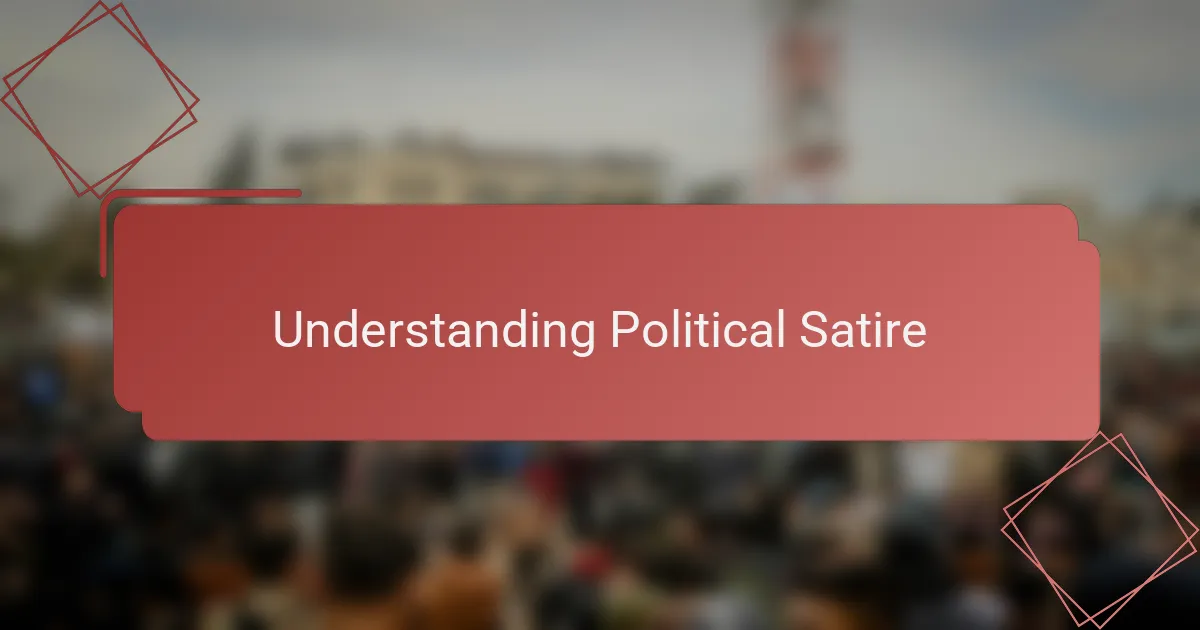
Understanding Political Satire
Political satire is more than just jokes about politicians; it’s a mirror reflecting society’s complexities. Have you ever caught yourself laughing and then paused to think about the deeper message behind the punchline? That moment is where satire works its magic, blending humor with sharp critique.
In my experience, the best political satire provokes uncomfortable questions while keeping us entertained. It’s like walking a tightrope between comedy and commentary—too heavy, and it feels preachy; too light, and it loses impact. This balance is what makes satire so powerful and relatable.
What intrigues me most is how satire can unearth truths that straightforward news sometimes misses. It invites us to challenge our assumptions and see politics through a more skeptical, yet humorous lens. Don’t you find that this mix of insight and laughter helps make sense of an often confusing political landscape?
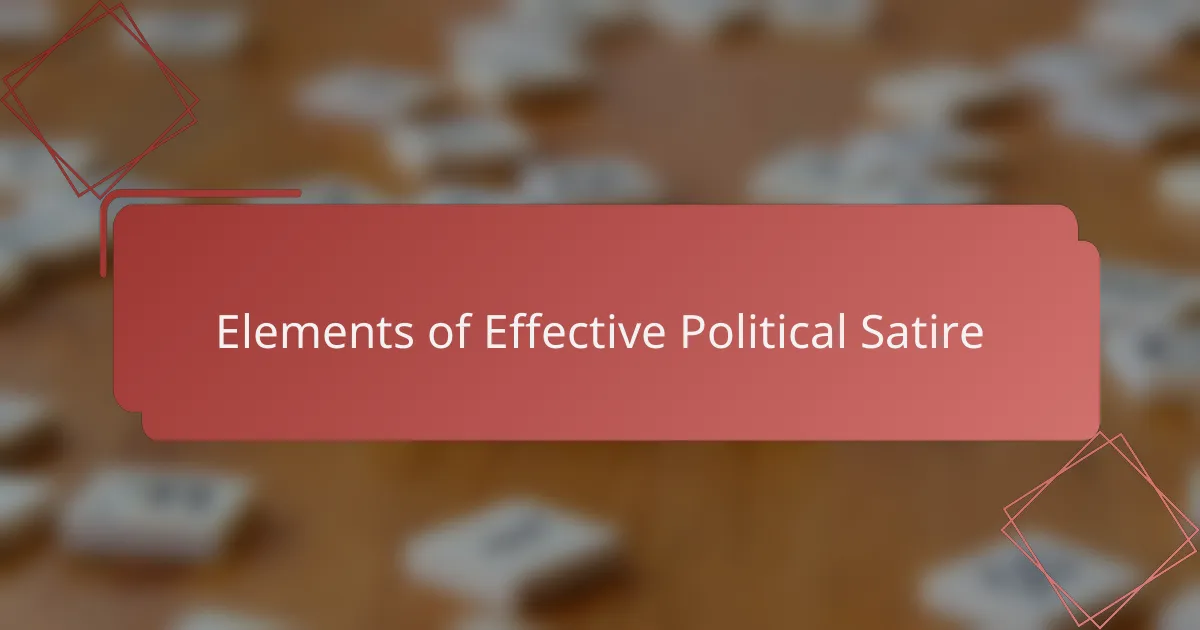
Elements of Effective Political Satire
One element I find essential in effective political satire is clarity. When the satire is clear, it draws you in without leaving you puzzled about the target or the message. Have you ever been caught in a joke that flies over your head? That disconnect can kill the whole point.
Another crucial part is timing. Satire thrives on current events and cultural moments. From my perspective, hitting that sweet spot—addressing something fresh but also giving it enough distance to allow reflection—makes the commentary hit harder. It’s like seasoning a dish just right; a little too soon or too late, and the flavor changes completely.
Lastly, I believe empathy plays a subtle but vital role. Good satire doesn’t just mock; it exposes flaws while still recognizing the humanity behind the characters involved. When I see satire that comes off as mean-spirited, it usually misses the mark for me. Isn’t it more powerful when humor bridges understanding rather than widens the gap?
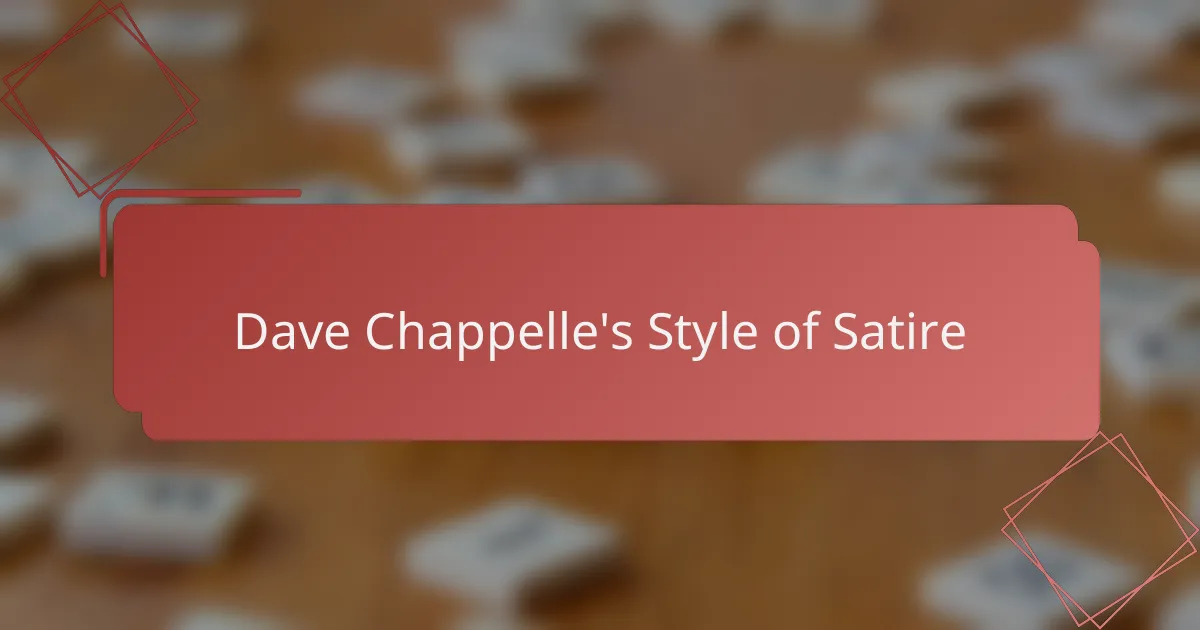
Dave Chappelle’s Style of Satire
Dave Chappelle’s style of satire strikes me as both bold and unapologetically raw. His ability to blend humor with sharp social critique feels like walking a tightrope—there’s a thrill in how he challenges audiences to confront uncomfortable truths. From my perspective, his delivery is as important as his content, making difficult political conversations more accessible through laughter.
| Aspect | Dave Chappelle’s Style |
|---|---|
| Tone | Bold, unapologetic, often provocative |
| Approach | Uses humor to reveal uncomfortable political and social truths |
| Delivery | Conversational with a sharp edge, engaging audiences personally |
| Impact | Challenges mainstream narratives while retaining accessibility through comedy |
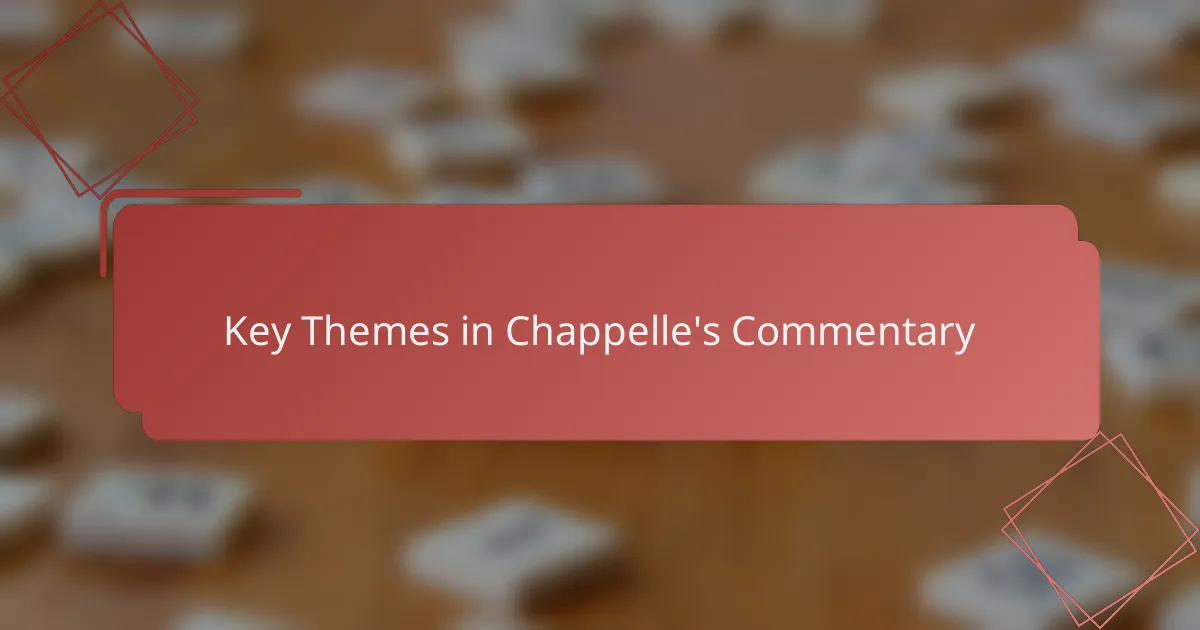
Key Themes in Chappelle’s Commentary
Dave Chappelle’s political commentary often revolves around themes of race, freedom of speech, and societal hypocrisy. One thing I find compelling is how he blends humor with serious critique, making complex issues accessible without diluting their impact. It reminds me of the time I first heard him tackle delicate subjects—his approach made me rethink how comedy can challenge political narratives.
| Theme | Chappelle’s Approach |
|---|---|
| Race | Uses personal stories and sharp satire to expose racial injustices and systemic bias. |
| Freedom of Speech | Highlights the tensions between political correctness and free expression, often pushing boundaries. |
| Societal Hypocrisy | Mocks inconsistencies in public discourse and challenges accepted norms. |
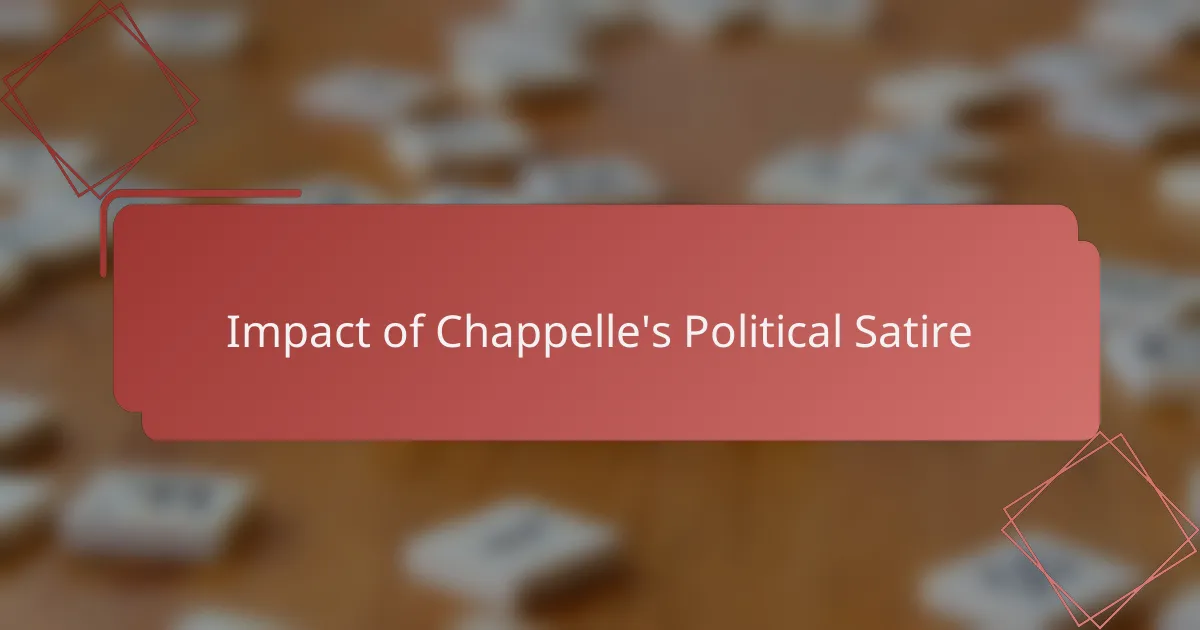
Impact of Chappelle’s Political Satire
Dave Chappelle’s political satire has a unique way of sparking conversations that linger long after the joke lands. From my experience watching his specials, his commentary cuts through the noise by blending humor with raw truths, making audiences reflect on uncomfortable realities. I remember feeling a mix of discomfort and amusement during his takes on race and politics—this emotional push is what makes his satire impactful.
What’s striking is how Chappelle uses satire not just to entertain but to challenge societal norms and political narratives. His ability to provoke thought while keeping the tone casual makes complex issues more accessible and relatable. Here are some key impacts I see in his political satire:
- Encourages critical thinking by exposing contradictions in political discourse
- Creates space for dialogue on sensitive social issues
- Uses humor to break down barriers and reduce polarization
- Forces audiences to confront their own biases and assumptions
- Amplifies marginalized perspectives in a way that traditional commentary often misses
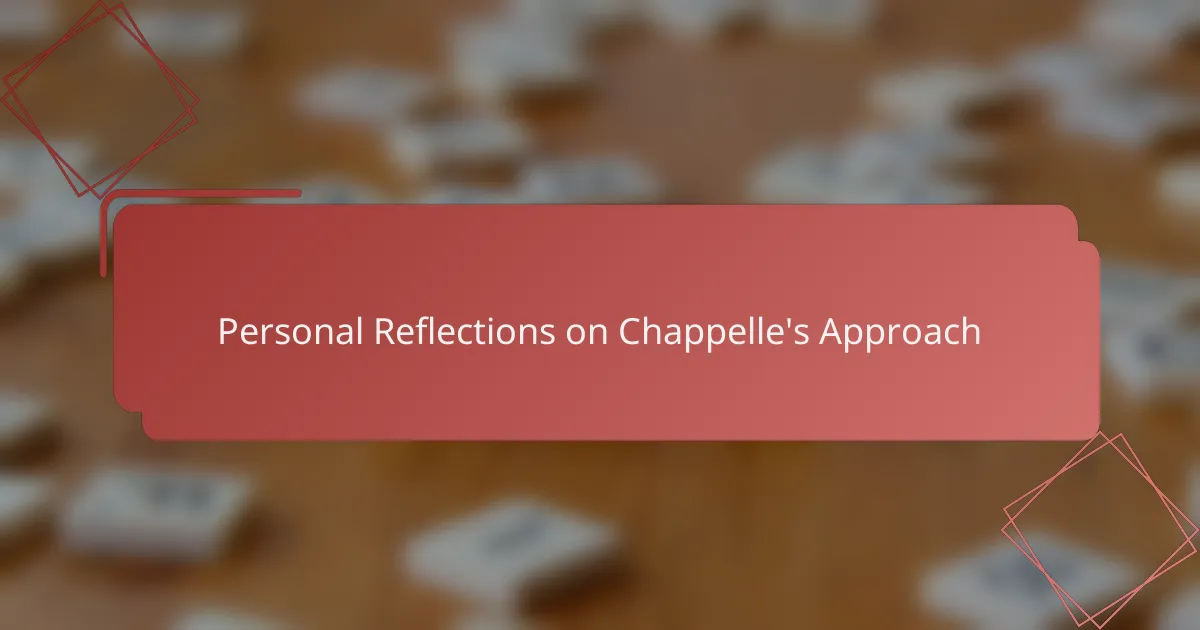
Personal Reflections on Chappelle’s Approach
When I reflect on Chappelle’s approach, what stands out most is his fearless honesty. It’s like he’s inviting us into a tough conversation but cushions the blow with humor that hits just right—no sugarcoating, yet never careless. Have you ever felt that mix of shock and amusement, where the joke unsettles you but also makes you think deeply? That’s exactly where I think he excels.
At times, his approach feels like walking on eggshells, but he manages to balance it with a conversational style that feels personal and intimate. I remember watching one of his specials and realizing how his raw delivery made the political commentary feel less like a lecture and more like a candid chat with an old friend. That kind of accessibility is rare and, in my opinion, essential for satire that truly resonates.
Sometimes, I wonder if all audiences are ready for his brand of satire. His boldness can alienate as much as it engages, and I’ve seen people grapple with discomfort when confronting the themes he raises. Yet, it’s that very discomfort that I believe sparks real reflection. To me, Chappelle’s approach doesn’t just challenge us—it also demands we examine why we feel challenged in the first place.
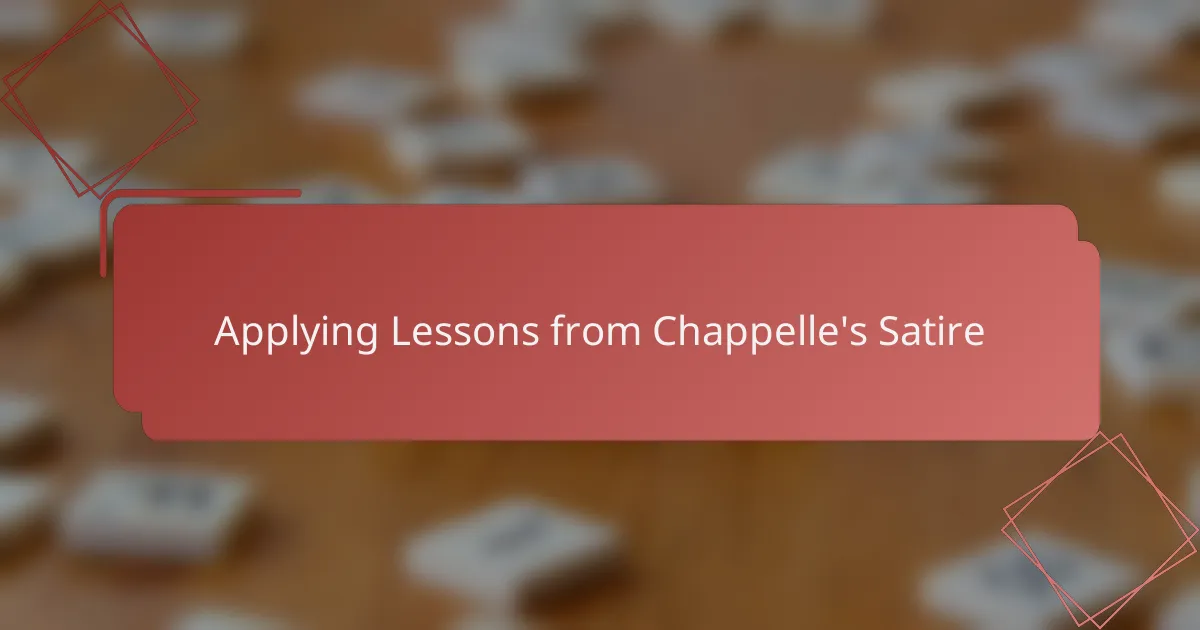
Applying Lessons from Chappelle’s Satire
One lesson I take from Chappelle’s satire is the power of unfiltered honesty paired with humor. His ability to tackle sensitive topics head-on, without softening the blow, reminds me how important it is to be fearless yet thoughtful in political satire. Have you ever noticed how the most memorable jokes are often the ones that make you a bit uncomfortable but force you to rethink your views?
Another insight I’ve gained is how effective satire thrives on personal connection. Chappelle’s conversational delivery makes complex or divisive issues feel like sharing stories with a trusted friend. From my perspective, this approach breaks down barriers, allowing satire to reach people who might otherwise shut down when faced with heavy political content.
Finally, applying Chappelle’s lessons means embracing complexity without losing clarity. His work shows me that satire doesn’t have to simplify issues to be impactful; it can hold contradictions and provoke questions that linger long after the laughter fades. Isn’t that what truly powerful satire should do—make us think, challenge, and maybe even change?
